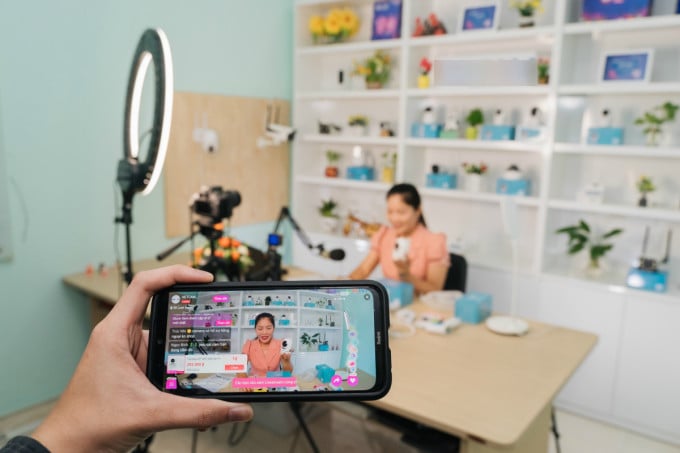
After 17 hours of livestreaming (May 4-5), the TikTok channel Quyen Leo Daily earned 100 billion VND, a record for a livestream selling session recorded on an e-commerce platform in Vietnam. Previously, this channel also earned more than 72 billion VND in a 12-hour livestream session in March.
Not only Quyen Leo, recently, livestream sales sessions with revenue up to tens of billions of VND have appeared many times. Even large e-commerce platforms such as Shopee and Lazada also consider this as the main form of sales.
"There are livestream sessions with up to 350,000 viewers at the same time, attracting an average of 5-20 million viewers," said Nguyen Thanh Lam, representative of TikTok Vietnam, which creates livestream sessions with huge sales. "Assuming only 1% of viewers buy products, sales of 100 billion VND are not large," he added.
Livestream sales is a business by broadcasting online videos on media such as social networking platforms, trading floors, e-commerce websites, and TV channels. NielsenIQ data company said that in the first quarter of the year, up to 95% of online customers bought products through this channel. According to the Vietnam E-commerce Association, there are an average of 2.5 million livestream sales sessions per month, with more than 50,000 participating sellers.
In livestream sessions, there are often organizations and individuals selling products for themselves or bloggers, tiktokers, and social media influencers who are paid commissions from livestream sales.
According to regulations, online sellers will have to pay value added tax and personal income tax if they have revenue of 100 million VND a year.
Individuals who earn income from commissions from live streaming sales will have to pay personal income tax according to the progressive tax schedule with 7 levels, tax rates from 5-35%. In case the commission is paid to a business household, they will have to declare and pay tax at the rate of 7%, including 5% value added tax and 2% personal income.
According to a representative of TikTok Vietnam, those who generate income on TikTok Shop, including sellers and content creators, must register a tax code, a bank account linked to their citizen identification card, and be subject to management by authorities.
However, Mr. Thanh admitted that with a large number of sellers and large transaction volume, compliance with tax regulations will "require great effort from all parties".
Assessing that tax collection in this sector is still losing money, at a recent conference, Prime Minister Pham Minh Chinh requested the Ministry of Finance to amend regulations on electronic invoices to control these transactions.
Currently, the tax authorities are reviewing and synchronously checking the use of electronic invoices in online business and livestream sales. Decree 123 is expected to be revised in the direction that retail industries will have to use invoices generated from cash registers, connected to tax authorities. That is, online sales and livestream will also be included in this category.
This type of invoice will have information about the seller, buyer (if required), name of goods, services, unit price, quantity, payment amount, time of invoice creation. The tax authority code or two-dimensional barcode (QR Xcode) is also included for the buyer to access information.
A service provider said that to use this invoice, the seller will install software that allows automatic invoice issuance after the order is completed or delivered to the carrier. The seller can proactively send data to the tax authority or set it to be sent automatically at a fixed time frame. These operations do not take much time to operate, wait long and are stored online for easy reference.
According to lawyer Nguyen Thanh Ha, Chairman of SB Law Firm, the requirement to issue electronic invoices will ensure transparency in livestream activities. "Sellers will not be able to falsify data, limiting tax fraud," he said, adding that this proposal will also help consumers feel more secure about the legality and quality of products and services.
However, he said that individuals and small organizations may have difficulty applying due to lack of knowledge, skills and technology. On the contrary, controlling everyone to comply can be a big challenge for authorities.
"The revenue figure on livestream is not necessarily the actual amount of money earned due to the high return rate," he said, suggesting that authorities have a policy of technical support so that small retailers can issue electronic invoices. At the same time, he said that the laws on tax, e-commerce management, and livestream sales must also be improved to apply electronic invoices effectively and fairly.
Reconciling revenue from platforms could be another solution, in addition to electronic invoices, to control revenue sources from livestream sales. Currently, 258 platforms have provided information to tax authorities via the E-commerce Information Portal, which has been in operation since the end of 2022. The data provided shows that nearly 14,900 organizations and 53,200 individuals have registered to sell on the platform. The number of transactions is more than 14.5 million, equivalent to 4,500 billion VND.
In addition, the tax sector also shared information with the Ministry of Industry and Trade about 929 e-commerce platforms, compared data from 361 platforms; recorded over 663,000 connections to the population database of the Ministry of Public Security .
Sharing with VnExpress, representatives of Shopee and Lazada confirmed that they have been providing information as required by the tax authorities on a quarterly basis. They are committed to maintaining this in a transparent and orderly manner.
Similarly, the representative of TikTok Vietnam assessed that tax collection on registered and licensed e-commerce platforms is stricter than that on non-platforms such as groups and social networks. Because, individuals or business organizations when participating in transactions on this platform are required to provide information and support to fulfill personal income tax obligations.
Through network operators and e-commerce platforms, tax authorities can identify sellers and revenue generated through the platform. Initially, according to the General Department of Taxation, through screening and propaganda, some individuals with incomes of tens of billions of dong from livestream sales have voluntarily registered, declared and paid taxes of up to billions of dong.
To increase the effectiveness of this channel, the Ministry of Finance recently proposed that floor owners must declare and pay taxes on behalf of individuals doing business on it.
Commenting on this proposal, Mr. Nguyen Van Duoc, General Director of Trong Tin Tax Consulting Company, said that the floors have full information about buyers, successful sales transactions, revenue, and expenses of organizations and individuals providing goods and services. "This is the basis for them to be able to do it on behalf of sellers," he said, believing that this process will help reduce tax compliance costs for households and individuals doing business when they authorize the floors to declare and pay taxes on their behalf.
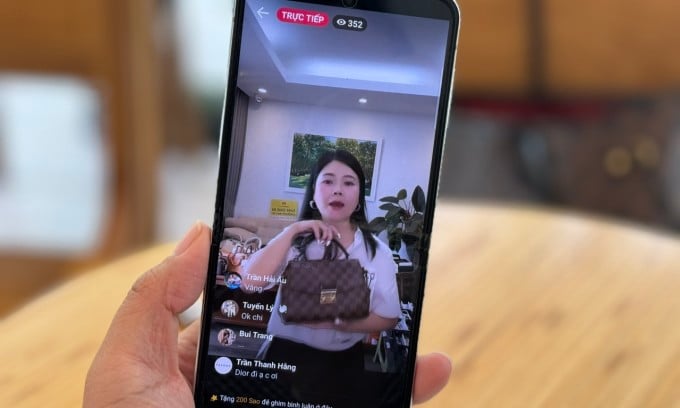
Determining cash flow and income through banks can be the third way for tax authorities to avoid losing revenue from individuals doing online business without going through the floor, often using tricks such as deleting posts after livestreaming, closing orders via inbox, receiving transfers without clearly stating the content, and paying in cash.
In cases where individuals do not voluntarily declare, the tax authorities can coordinate with banks to determine cash flow and income. Then, they invite these individuals to work directly to guide and handle.
Currently, the Ministry of Finance has information from 144 million payment accounts, an increase of more than 20 million compared to the end of April. Of these, about 10 million are organizational accounts and 134 million are individual accounts at 96 banks.
According to Finance Minister Ho Duc Phoc, comparing with banks will collect a huge amount of tax, especially with livestreaming and selling via social networks. However, according to Governor Nguyen Thi Hong, data on taxpayers' payment accounts is sensitive information.
"The processing and synthesis must be careful and comply with regulations on protecting the confidentiality of customer information and personal data," Ms. Hong said, adding that the Ministry of Finance needs to have guidelines for standardizing data, connection methods, and information sharing to prevent tax losses while still protecting personal data.
In addition, checking with the shipping and postal parties is also an option that has been mentioned many times by experts.
According to Mr. Nguyen Van Duoc, the situation when selling goods in cash through the postal system or shipper is difficult to collect enough tax. Because, in many cases, it is difficult to successfully trace due to insufficient basis to prove the successful purchase and sale of goods and services, resulting in tax obligations.
Most of these transactions are provided directly to consumers who do not require invoices. This gives sellers the incentive and opportunity to commit tax fraud, especially in the case of cash collection via postal delivery or shipper, because they believe that it will be difficult for tax authorities to detect fraud.
From there, he said that the tax industry needs to coordinate with relevant organizations and individuals to manage and collect taxes. "Depending on specific conditions, tax authorities can work with telecommunications, post offices, and delivery companies to exchange and provide information on bills of lading," he suggested.
At the same time, tax authorities need to supplement regulations on the exchange and provision of information mentioned above similar to e-commerce platforms. "This will be an important piece in the overall picture of tax management and preventing tax losses with e-commerce," he emphasized.
LA (according to VnExpress)Source: https://baohaiduong.vn/cach-giup-thu-thue-livestream-ban-hang-385055.html





















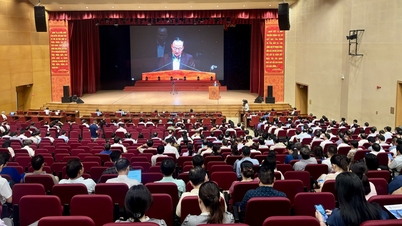




























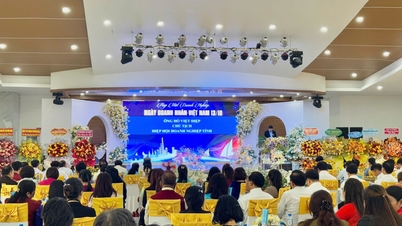














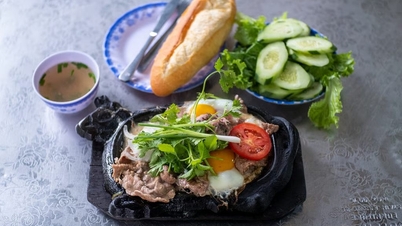



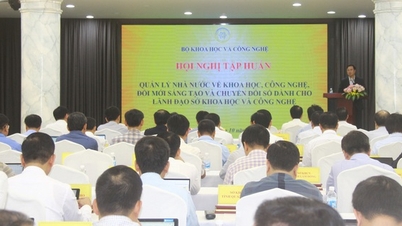












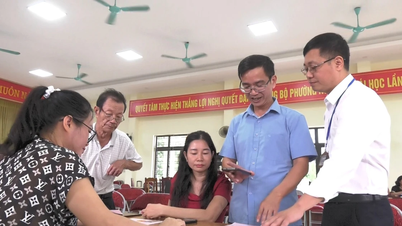


















Comment (0)